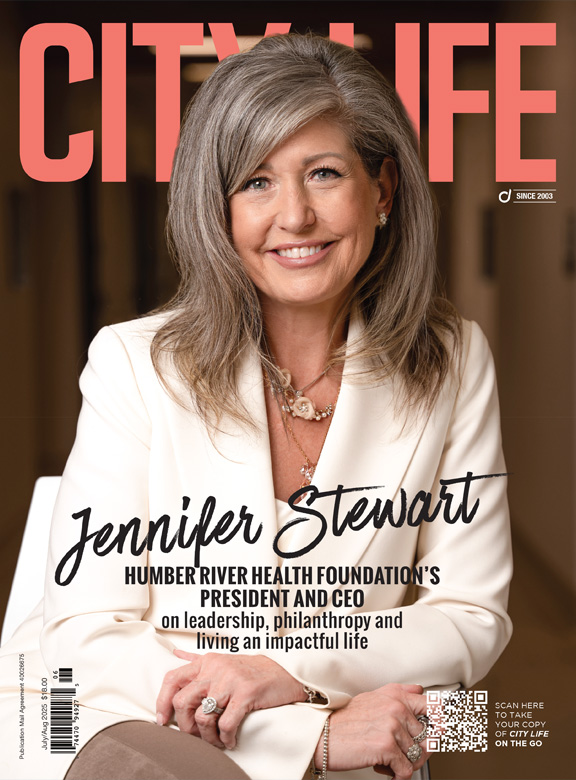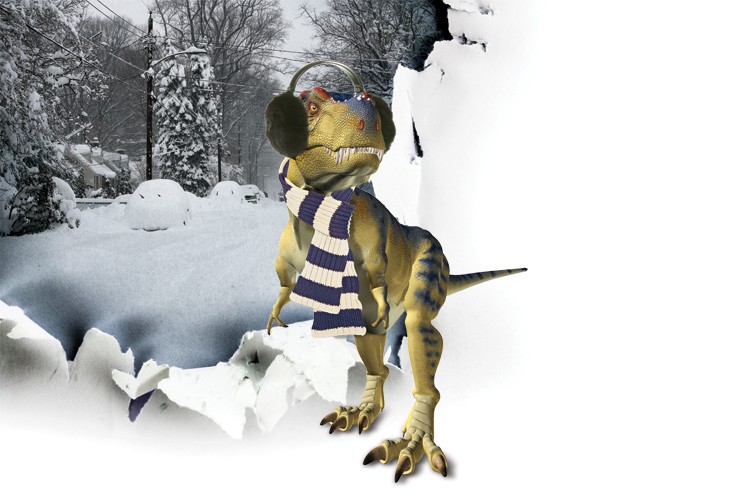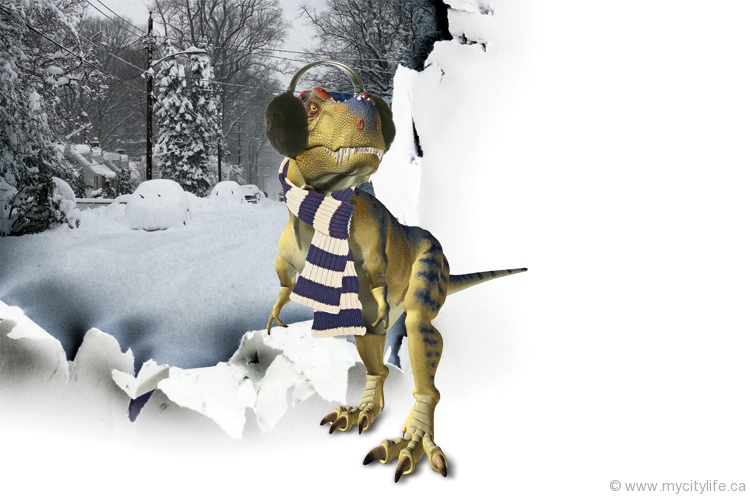Snowpocalypse II: The Rise of the Rex
The Old Farmer’s Almanac has released its predictions for this coming winter, and if you thought last year was bad, think again.
According to the Almanac — a reference book that’s printed practical information, such as tide tables and weather forecasts, folksy stories and other interesting facts for 223 years — this winter will be another cold and nasty one, with above normal snowfall and temperatures one to two degrees below normal for most months.
“I’ve been calling it a ‘T-Rex of winters,’” says Jack Burnett, editor of The Old Farmer’s Almanac.
For those who haven’t seen Jurassic Park, that means that this winter doesn’t want to be fed. It wants to hunt. Which is bad. Really bad.
The most teeth-chattering periods will be during mid-December and the first two weeks of January and February, the snowiest periods will be in December and mid-to-late March, and the point of our collective sanity snapping will depend on the quality of therapy we all received after last year’s Snowpocalypse Part I: The Snowreckoning. (My bookie has Jan. 30-31 at 2:1 odds, which, like, has to be a lock!)
Burnett adds that we’ll be getting less precipitation, such as sleet and freezing rain, but we’ll still have to contend with an onslaught of flurries, which will no doubt turn the city into a playground for the hordes of Abominable Snow Monsters that are to follow.
“There’s not going to be any messing around,” he says. “There’s no middle ground. Here it comes.”
The Almanac uses “instructions” originally outlined by its founder Robert B. Thomas that takes into account meteorology, climatology, solar radiation, such as sunspots, and historical weather conditions to make its weather forecasts. It crunches all that info through computer algorithms to make its predictions, which, although made a year and a half in advance, the Almanac claims are 80 per cent accurate.
So what does this all mean? Well, you’re going to want to stock up on industrial-sized pack of long johns and buy more shares in Big Road Salt. And if your snow blower isn’t powered by a V-8 Hemi you might as well just quit your job right now, ’cause you’re not getting out your front door, never mind your driveway. We’re in for a doozie, so bundle up.
Or, maybe not.
“We don’t take Farmer’s Almanac predictions seriously,” says Peter Taylor, professor of atmospheric science at York University.
Taylor explains that most models of weather forecasting are good up to about 10 days or so. After that they start to lose their accuracy — there are too many factors at play.
“The horizon of which you can forecast with some reliability is increasing,” he says, “but it’s not a year.”
The issue is we don’t know how conditions will “evolve from a given initial state.” Slight changes or fluctuations in that initial state can cause massive changes over the long run, making it difficult to plot long-range forecasts.
Like the butterfly that flaps its wings in South America and causes a tornado in the U.S.? “That’s perhaps a slight exaggeration, but the idea that slightly different initial states of conditions can lead to a significantly different evolution of the weather pattern is still true.”
While the Meteorological Service of Canada gives seasonal forecasts, Taylor suggests that those interested in long-term weather predictions visit the website of the International Research Institute for Climate and Society. “That is where I would tell my students to go look. That’s where I would look,” he says. This organization, located at Columbia University, is supported by the U.S. National Oceanographic and Atmospheric Administration and collaborates with various groups around the world to collect data from many different circulation models to make its forecasts.
“Right now their models say it’s going to be pretty much a normal winter, maybe slightly above normal temperatures,” says Taylor.
While the Almanac’s prediction might be contentious, Burnett does have a great tip for those dreading the looming winter.
“It might be nice to have a vacation this year,” he says. “The practical advice is it costs less to book your vacation further in advance.”
And that’s one thing we can all agree on.

















































































No Comment